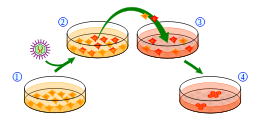 |
| A pig in a poke for only $42! |
I have a confession. I am not a professional scientist at the moment. I am, as they say,
between jobs. But all the world's a lab and all the people are scientists, or so it says in my Shakespeare fan fiction. We all do experiments in our lives, some with more rigor than others, and part of my regimen to keep my mind sharp is to maintain this blog.
However, one major problem with a move from a lab stool to an armchair is journal access. Perennially a problem, even for scientists at major universities, it is exceedingly so once one looses affiliation. I feel it is one of the biggest problems with the field today.
For those lay-folk who are not familiar, journal access is online access to articles in scientific journals. Besides a few scattered
open-source titles, the majority of publications are behind huge paywalls. As in, you have to pay US $35.00 or so to see
one article, if you're not fortunate enough to have access through your university's or institution's subscription.
Typically the most one can get for free is the abstract, which is like the movie description on your DVR, and about as useful. Also, each article is only published in a single journal, so even if you have some journal access there are usually articles out there you can't access. Just like all those movies you want to stream but you can't.
Also the obvious refuges one would think would have access have poor to no access: Public libraries have superficial access if any, and alumni have little or no access (or atleast my Ivy League diploma doesn't get me anywhere).
And before you ask why I don't bother my old coworkers, it's because they're either too busy working 14 hour days, or they will run into the same nonsense as I do.
So this is a problem, but is it really that big of a deal? I think so, because we need the public to know what we do. We must have our results and methods be transparent and accessible to all. We can complain all we want about how a newspaper article exaggerated, misrepresented, or otherwise misinformed the public. Yet if the public has no other source of information and cannot go to the source, should we be surprised? This is but an extension of the ivory tower, and although it may not be entirely to blame for distrust and ignorance of evolution or global climate change, it certainly cannot be helping.






